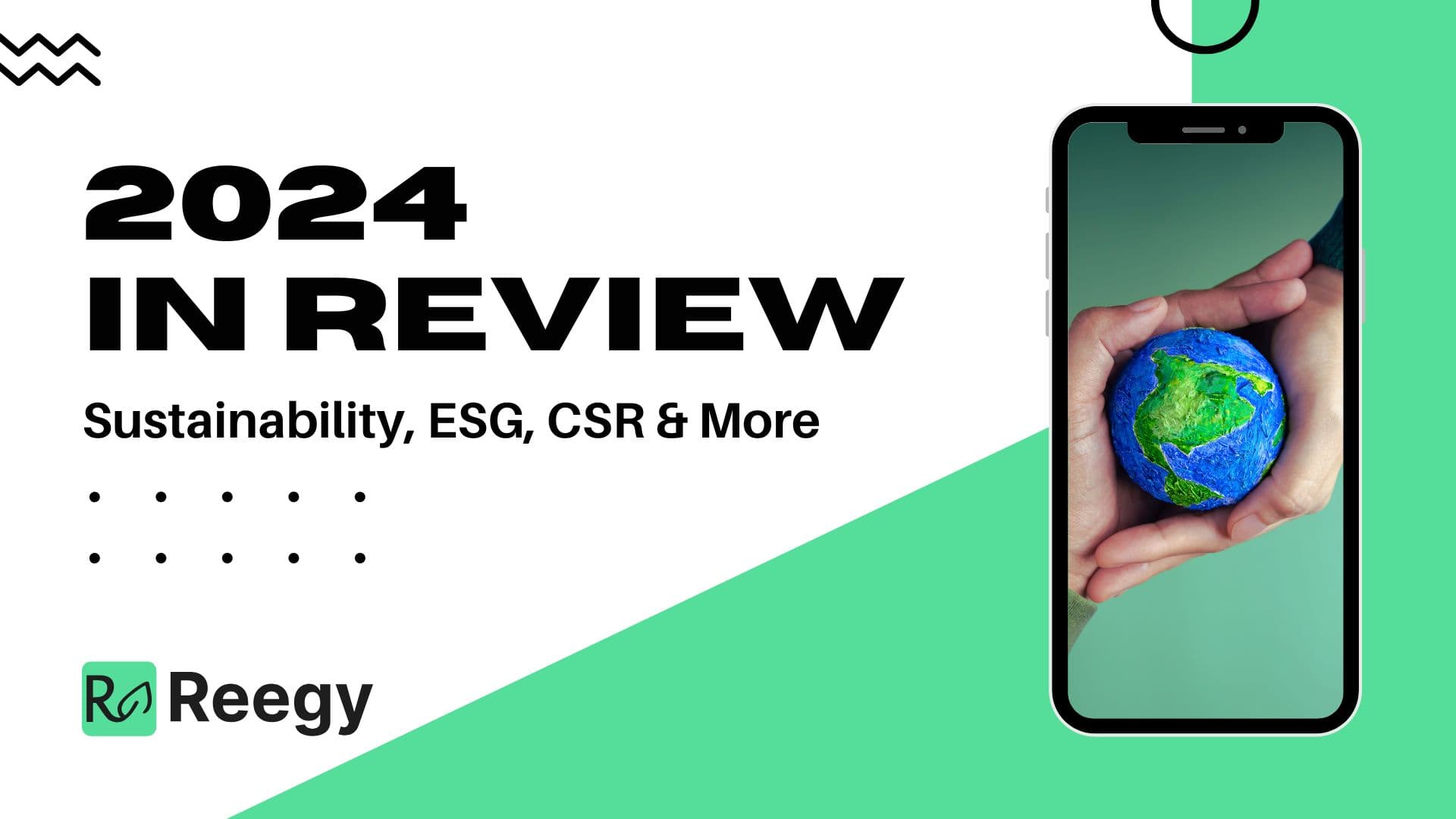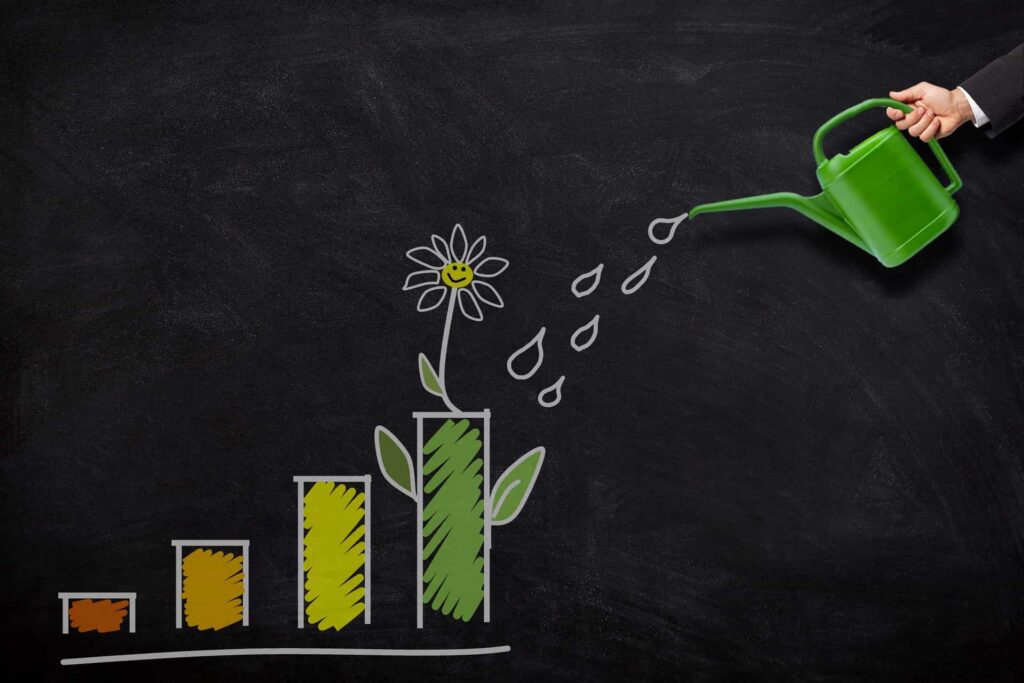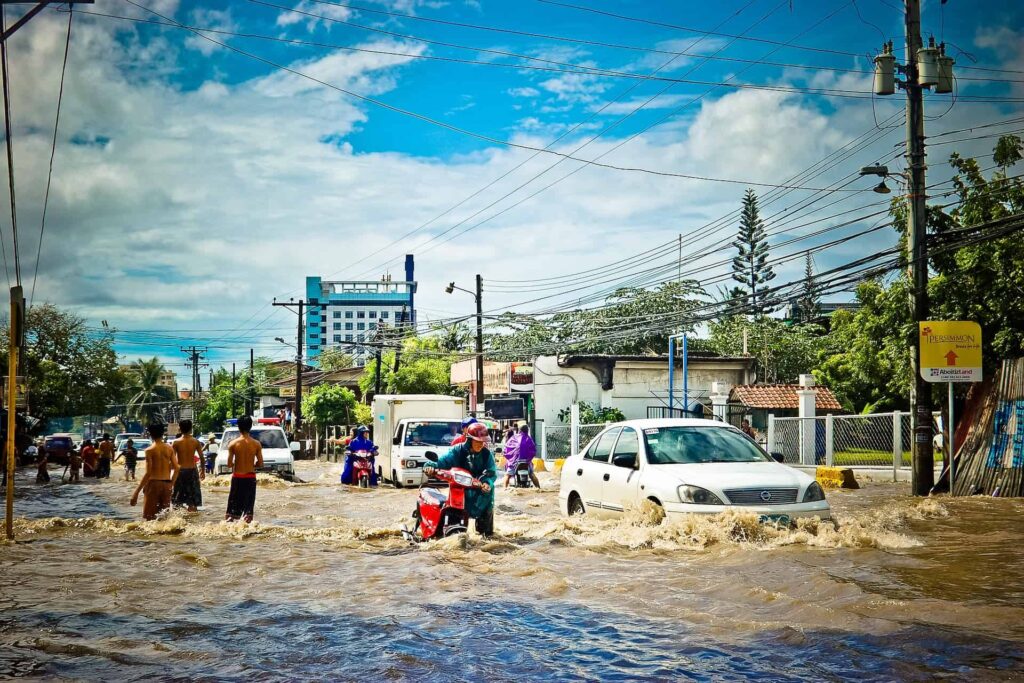
2024 has seen a lot of ups and downs for sustainability, ESG, and corporate social responsibility (CSR). On the one hand, we saw incredible progress in areas like renewable energy and ESG investments, but also faced some serious setbacks, like the growing impact of climate-related disasters and more and more anti-ESG movements across the world. Let’s take a closer look at what stood out in 2024—the highs, the lows, and what’s next.
Key Milestones in Sustainability
2024 confirmed numerous critical milestones for global sustainability. While challenges persisted, there were groundbreaking achievements that set the stage for a greener future:
Record year for renewables
Renewables have since exponential growth and are on track to even more in 2025. Emerging markets like Vietnam and Nigeria led the way here. In 2024, solar PV and wind generation together surpassed hydropower generation.
Reduced Rainforest Deforestation
In great news for biodiversity, Brazil reported a 31% drop in deforestation rates compared to last year! This also marks it as its lowest level since 2015. This progress offers hope for preserving critical ecosystems despite ongoing challenges.

Climate Agreements and Policies
This year brought some major updates to global climate policies. At COP29 in Baku, world leaders renewed their commitment to limiting global warming to 1.5°C, with an emphasis on phasing out fossil fuels entirely by 2050.
UK Abandons Coal Power
The UK became the first G7 country to fully abandon coal-powered electricity. The final coal plant in Nottinghamshire was officially disconnected from the grid, ending 142 years of reliance on coal for energy.
Global Pact to Transition from Fossil Fuels
This year saw a historic global agreement to phase out fossil fuels, signaling a united commitment to accelerate the shift toward cleaner energy sources.
World’s Largest Heat Pump
In an exciting development, Finland began constructing the world’s largest heat pump, showcasing leadership in clean and innovative heating technologies.
Global Climate Accountability
The International Court of Justice (ICJ) made history by requiring nations to actively combat climate change, solidifying climate action as a matter of international law.
Tokyo Expands Climate Resilience Infrastructure
Tokyo tackled climate change head-on by expanding its underground ‘temple’ complex, designed to manage flooding caused by increasingly severe rainfall.
EU Environmental Investments for the Ocean
The EU announced €3.5 billion to protect our oceans through various funds and sources. This is great news for the planet and we hope to see more of these in 2025!

EU CBAM Phase-In Begins
The EU’s Carbon Border Adjustment Mechanism (CBAM) entered its transition phase, putting a price on carbon-intensive imports like steel and aluminum to drive cleaner global production practices.
Global Sustainability Reporting Standards
The International Sustainability Standards Board (ISSB) launched harmonized sustainability reporting standards, adopted by over 30 jurisdictions. These standards are set to improve transparency and foster consistent practices across industries.
Urban Pollution Reduction in Paris
Paris made significant strides in improving urban air quality by banning through-traffic in its city center, expanding bike lanes, and replacing parking spaces with trees—a bold move toward sustainable urban living.
Ozone Layer Recovery Ahead of Schedule
The United Nations Environment Programme (UNEP) announced that parts of the ozone layer could fully recover by the 2030s, underscoring the success of the Montreal Protocol.
EU Ecodesign Regulation
In mid-2024, the EU introduced new ecodesign regulations enforcing standards for durability, repairability, and recyclability. These measures aim to promote circular product design and reduce environmental impact.
Notable Setbacks
On the flip side, 2024 saw some of the greatest setbacks and a growing anti-ESG movement across the world.
Rising Climate Disasters
Despite the progress, the year was marred by extreme climate events that underscored the urgency of global action. Catastrophic flooding in South Asia displaced millions, while prolonged droughts in Africa worsened food insecurity. These disasters highlighted the uneven impacts of climate change, with developing nations bearing the brunt of the consequences.

Anti-ESG Movements
A growing backlash against ESG initiatives emerged in 2024, particularly in the United States and parts of Europe. Critics argued that ESG policies placed undue burdens on businesses, and some states introduced legislation to limit the influence of ESG in financial markets. This resistance has slowed momentum for adopting sustainability practices in certain regions.
Missed Emission Reduction Targets
While renewable energy adoption accelerated, global emissions did not decline at the pace needed to meet the 2030 climate goals. Several countries, including major economies, fell short of their interim targets, raising concerns about the feasibility of longer-term climate commitments.
Biodiversity Loss Continues
Despite progress in reducing deforestation in some areas, biodiversity loss remained a critical issue in 2024. Habitat destruction, particularly in Southeast Asia, continued to threaten endangered species, highlighting the need for stronger conservation measures.
Challenges in Green Financing
Developing countries faced significant hurdles in accessing green financing. While mechanisms like carbon credits and international funds were available, the distribution of resources remained uneven, leaving many vulnerable nations underfunded in their climate adaptation efforts.
Critiques of Greenwashing
Greenwashing remained a hot topic. Several high-profile companies faced backlash for overstating their sustainability efforts. This sparked a broader conversation about accountability and the need for better standards in ESG reporting.
Just this week, McKinsey was fined $650 million for greenwashing and other malicious practices.
Global Disparities
Developing nations continued to struggle with accessing green financing, further widening the gap between wealthy and vulnerable countries in tackling climate challenges.
ESG Trends in 2024
Corporate Commitments
More companies than ever set ambitious ESG goals this year. Over 70% of Fortune 500 firms are now committed to achieving net-zero targets.
Investor Interest
ESG investments soared past $50 trillion globally, making it one of the fastest-growing areas in finance. Green bonds and sustainable ETFs dominated markets, and investors demanded greater transparency in ESG metrics, leading to a shift toward more robust reporting standards.
Regulatory Developments
The European Union expanded its Corporate Sustainability Reporting Directive (CSRD), requiring companies to provide detailed disclosures on emissions and social impacts. In the U.S., the SEC mandated climate risk disclosures for public companies, a long-awaited move to enhance accountability.
Technology and Innovation in 2024
Breakthroughs in Green Tech
The tech world in 2024 truly delivered for sustainability, bringing innovations that felt straight out of science fiction. Let’s talk energy storage—this year, groundbreaking advancements in battery technology made renewable energy grids far more reliable and stable, a crucial step for scaling up clean energy globally.
And how about carbon capture? Iceland took a bold step by launching a massive facility capable of pulling 10 million tons of CO2 out of the atmosphere every year. It’s not just a game changer—it’s a glimpse into a future where we can start undoing some of the damage already done.

Role of AI and Automation
If you thought AI was just for chatbots, think again. This year, AI-powered platforms revolutionized ESG reporting by automating data collection and offering real-time insights. Companies big and small leveraged these tools not only to track their emissions but also to find smarter ways to cut them. From predictive analytics to supply chain optimization, AI showed its potential to turbocharge sustainability efforts.nitor their carbon footprints and make smarter decisions about reducing emissions.
Emerging Trends to Watch
2025 is shaping up to be a fascinating year for sustainability, with some game-changing trends on the horizon. Biodiversity credits are expected to step into the spotlight, standing alongside carbon credits as a way to incentivize the protection of ecosystems. At the same time, enhanced carbon pricing mechanisms are likely to put even more pressure on industries to innovate and reduce their emissions.
And let’s not forget the role of AI-driven solutions. From smarter supply chains to real-time tracking of environmental impacts, AI is set to continue driving sustainability efforts in creative and impactful ways. The integration of these tools could bring us closer to a truly circular economy.
Opportunities for Growth
Circular Economy Models: Cities worldwide are ramping up their investments in recycling and reuse infrastructure. Think large-scale initiatives to reduce waste and create closed-loop systems that transform old materials into new resources. This isn’t just about saving the planet—it’s also a massive economic opportunity.
Climate Resilience Projects: With floods and heatwaves becoming more intense, building resilient infrastructure is moving to the top of the priority list. Expect innovative projects designed to protect vulnerable regions from the worst effects of climate change, whether through advanced urban planning, green roofs, or flood-resistant systems.
Conclusion
2024 has been a year of both progress and challenges. From record-breaking renewable energy growth to the continued fight against greenwashing, the lessons from this year are clear: there’s no time to lose. Let’s step into 2025 with renewed determination to create lasting change—for the planet and for future generations.
Whether it’s switching to renewable energy, supporting fair-trade products, or reducing waste, every step counts. Together, we can build a brighter, more sustainable future.
What stood out to you in 2024? Share your thoughts and let’s keep the conversation going on how we can make 2025 even better.
Reegy is a complete software solution for ESG & Carbon Footprint Management. Our Reegy Eco Hub enables enterprises, financial institutions and governmental organizations to manage their climate action in one central location along the entire value chain. Track, measure, reduce, and offset your carbon emissions, disclose them to regulators, stakeholders, and customers and lead your company to Net Zero on autopilot!